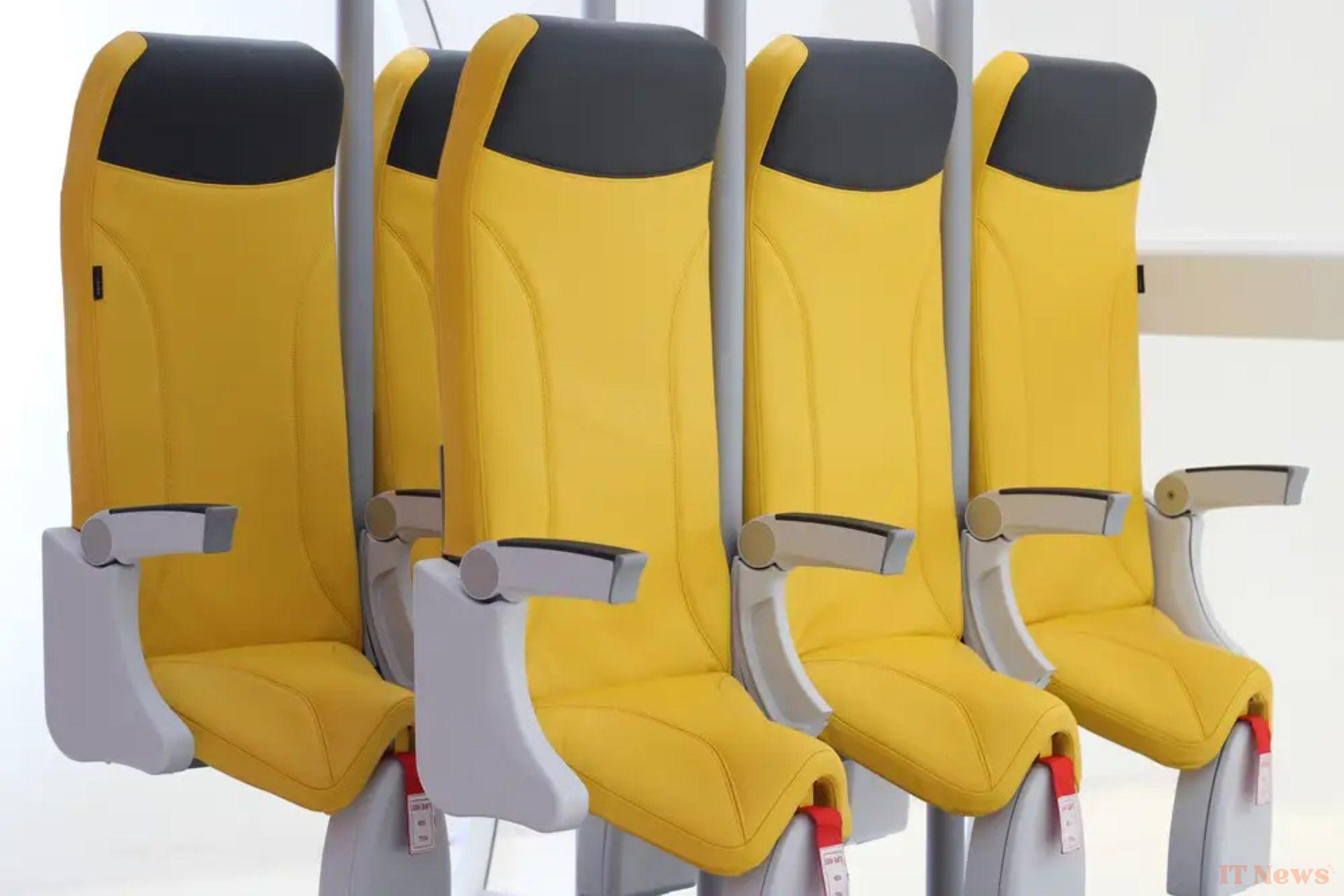In 2026, low-cost airlines will offer even cheaper flights... provided you sacrifice your thighs. Coming off an uncomfortable flight lasting a few hours, perhaps you've already laughed at the thought that one day, even seats will be extra. Well, it's no longer a joke: some airlines are getting ready to introduce standing seats. Introducing the Skyrider 2.0, a new type of seat that promises to make your next vacation a living hell. This concept, conceived by the Italian company Aviointeriors in 2018, could be integrated into low-cost airlines in Europe as early as 2026, reports the Spanish media Euro Weekly News.
The bare minimum of comfort on the fastest routes
The Skyrider 2.0 seats will force travelers to rest at a 45° angle, just enough to somewhat limit the strain on the leg muscles. Such a concept may seem dystopian, but European low-cost airlines will now be able to apply it to journeys of less than 2 hours. But just imagine a delay on the tarmac or during disembarkation for such a flight to turn into a nightmare.
What will the brave travelers gain from these sacrifices? Also according to Euro Weekly News, the first rumors are reporting one-way tickets at entry prices between €1 and €5. With no storage space under the seat, you'll likely have to pay a fortune for even the smallest tote bag: enough to make these savings useless.
However, the idea of €1 journeys between major European cities could well give rise to a new niche of customers, ready to travel even lighter than backpackers. What if round-trip flights for a day of shopping in London or Lisbon became the new norm? It's enough to make the ozone layer tremble.
And what do airlines have to gain from this?
By integrating Skyrider 2.0 seats into their planes, low-cost airlines will be able to accelerate their profitability, and not just a little. In terms of ticket sales alone, these record-breaking sales prices could motivate many travelers to book flights more regularly: thus filling planes more easily, but also more efficiently.
Indeed, these seats take up less space than conventional seats, and therefore allow for additional rows, increasing passenger capacity by 20%. Add to that the reduction in the aircraft's total weight to limit fuel costs, and the airlines hit the jackpot. In the future, you will therefore need to be particularly careful when booking low-cost flights and tick the “seat supplement” box to avoid unpleasant surprises when boarding.



0 Comments